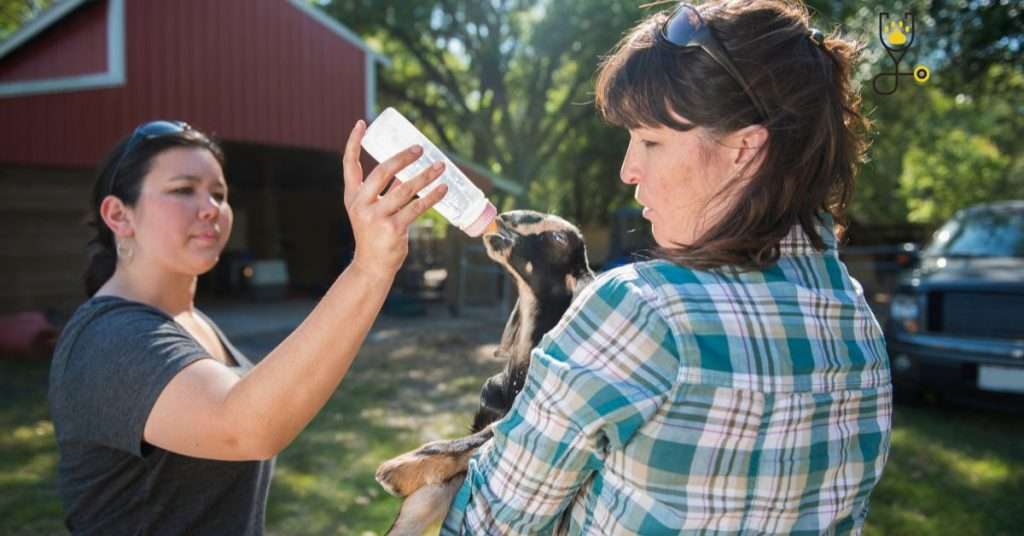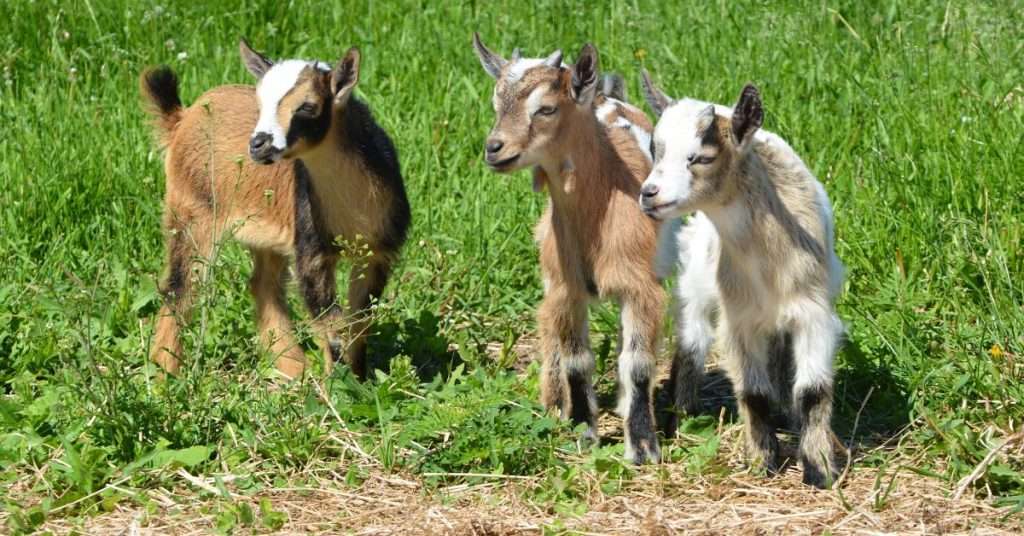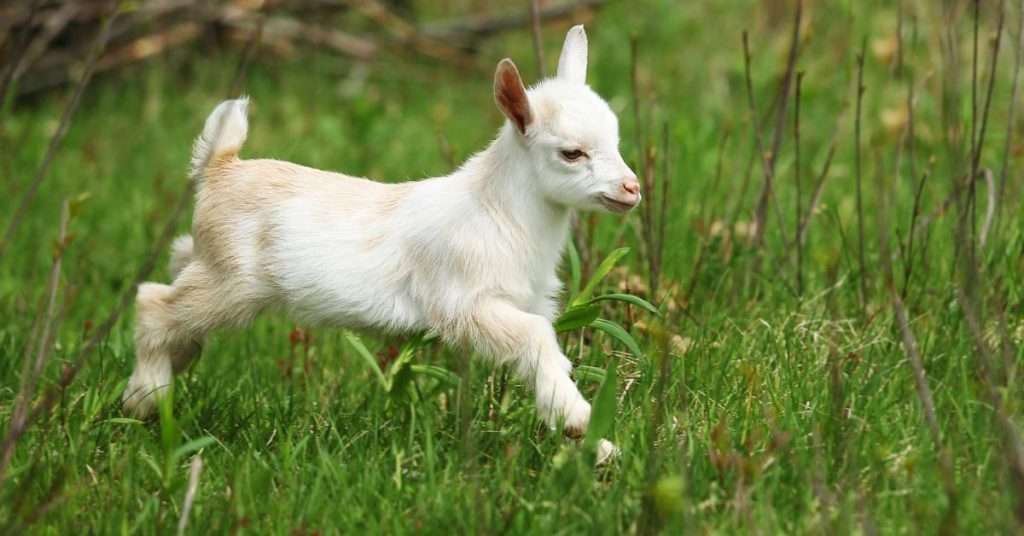Do you have a baby goat on your farm? If so, you may be wondering whether to bottle feed or not. Let’s take a look at the pros and cons of bottle-feeding a baby goat. Bottle feeding can ensure that your little one gets the nutrients they need, but it can also be time-consuming and expensive.

On the other hand, if you don’t bottle feed your baby goat, they may not get the nutrients they need and could end up sick. So, what’s the best option for you? Only you can make that decision!
Before You Commit to Bottle-Feeding a Baby Goat
Baby goats are very sweet and adorable, but they require a lot of care. If you take a baby goat from its mother and decide to bottle feed it, you are now its mother. This means that you will need to be available to feed it throughout the day (and sometimes at night). Baby goats need to be fed every two to three hours, and they should have access to fresh water at all times. In addition, you will need to clean their living area and provide them with plenty of hay or straw for bedding. Baby goats are a lot of work, but they are also a lot of fun. If you are prepared to handle the responsibility, they can make great pets.
Read More: 8 Best Dairy Goat Breeds: Goats for Milk
Baby Goats Can Be Expensive
When you are looking to purchase a baby goat, there are a number of factors that will affect the overall cost. One of the biggest factors is whether you purchase a bottle baby or a goat that is older and already weaned from its mother.
Generally speaking, bottle babies will be less expensive than their older counterparts. This is because they require more care and attention, and often need to be fed every few hours.
In addition, they may also need to be dewormed and given vaccinations. As a result, bottle babies typically come with a higher price tag. However, many people find that the extra care and attention required are well worth the cost.
Older goats, on the other hand, are typically less expensive but will still need to be fed and watered on a regular basis. They may also need their hooves trimmed and their horns removed. Ultimately, the cost of purchasing a baby goat depends on a number of factors. Be sure to do your research before making a purchase so that you can find the best possible option for your needs.

What Kind of Environment Does a Baby Goat Need?
Baby goats are very susceptible to cold and damp weather and must be kept in a warm, dry place. They cannot be exposed to the elements. A well-ventilated area is important, as is access to fresh air and sunlight. Baby goats also need a clean environment free of debris, sharp objects, and chemicals. A fence or other barrier should be placed around the perimeter of the area to keep goats in and predators out.
Water containers should be placed away from feeding areas to prevent contamination. Fresh hay should be provided daily, and baby goats should have access to fresh grass or pasture. Supplemental vitamins and minerals may also be needed. Caregivers should consult with a veterinarian to determine the best course of action.
Read More: 13 Best Sheep Breeds for Meat
Two Is Better Than One
If you are considering bottle-feeding a baby goat, it is important to understand that they do best when they have a companion. Baby goats are social creatures and will often become attached to their caretakers. However, they still need another goat to interact with.
As a result, it is generally recommended that you purchase two baby goats at the same time. This will allow them to socialize and play with each other, which is an important part of their development. It also means that you will not have to be available 24/7 to provide them with attention.
Of course, this does not mean that you can simply purchase two baby goats and leave them to fend for themselves. They will still need your care and attention, but having a companion will make it easier for both you and the goats.
Are You Ready to Bottle-Feed a Baby Goat?
Bottle feeding a baby goat can be a rewarding experience, but it is not for everyone. It requires a lot of time, effort, and patience. Before you make the decision to bottle-feed, be sure to do your research and consult with a veterinarian.
You should also be prepared to commit to the task for the duration of the goat’s life. Baby goats typically need to be bottle-fed for the first six months of their lives, but some may need to be fed for longer.

What Are the Pros and Cons of Bottle-Feeding a Baby Goat?
There are both pros and cons to bottle-feeding a baby goat. Some of the benefits include:
• Allowing you to bond with the goat
• Giving you control over what the goat eats
• Ensuring that the goat gets enough nutrition
However, there are also some drawbacks, such as:
• The time commitment required
• The cost of formula and other supplies
• The potential for health problems if the goat is not properly cared for
Ultimately, the decision of whether or not to bottle-feed a baby goat is a personal one. Be sure to weigh the pros and cons carefully before making a decision.
Read More: How to Prepare Your Chicken Coop for Bad Weather
What Are the Steps to Bottle-Feeding a Baby Goat?
If you have decided to bottle-feed a baby goat, there are some important steps that you need to take.
- First, you will need to purchase formulas and supplies.
- Then, you will need to learn how to properly mix and prepare the formula.
- You will also need to create a schedule for feedings and learn how to properly hold and bottle-feed the goat.
- Finally, you will need to monitor the goat’s health and development.
All of these steps are important in ensuring that the goat is healthy and happy.
Carefully consider your decision before moving forward, as it is a big responsibility. However, if you are prepared to take on the task, bottle-feeding a baby goat can be a wonderful experience.